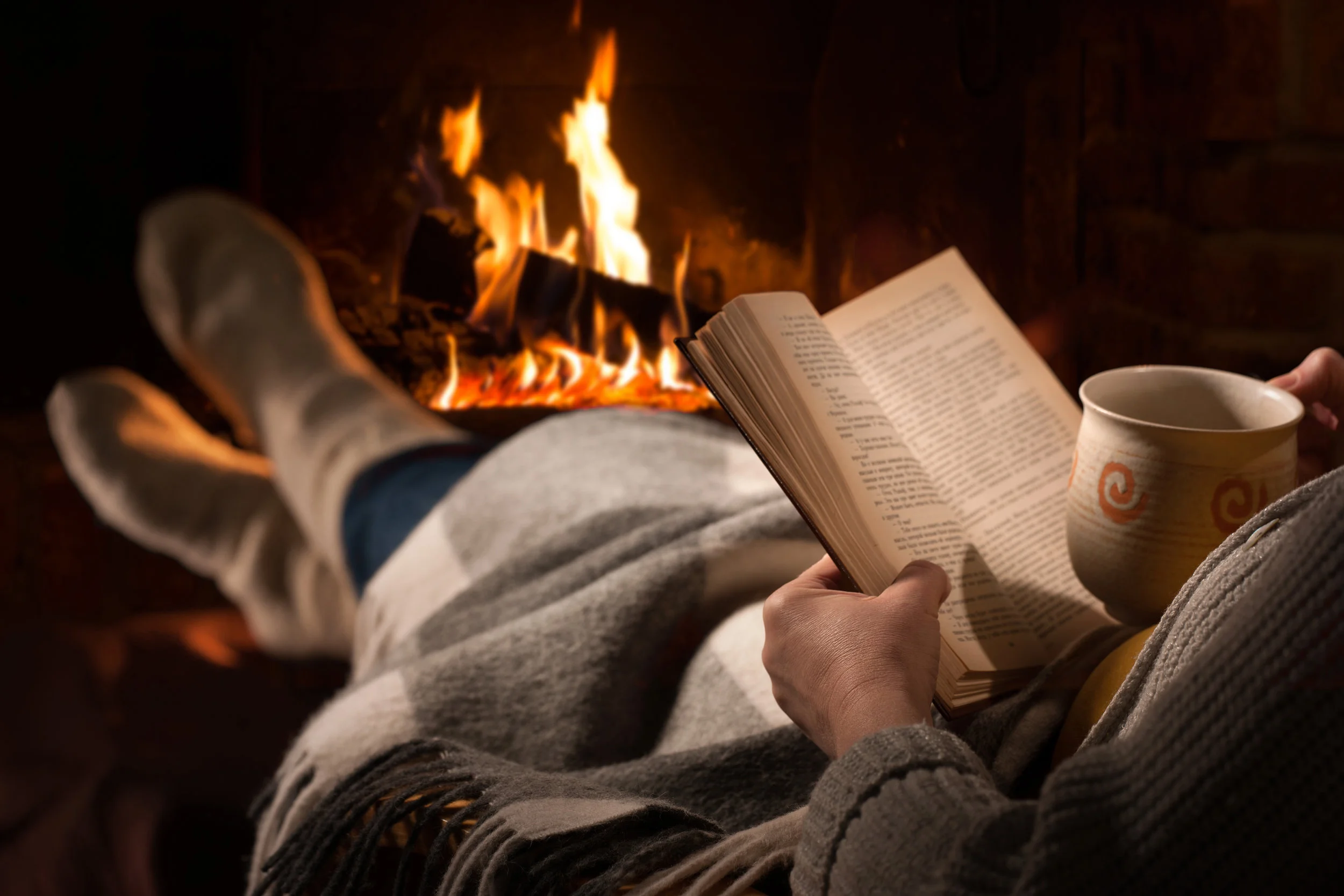I landed in New York City before 5 p.m. yesterday to visit my daughter, and it was already dark here in the far eastern edge of the Eastern time zone. It's cold, too.
Today, the cold wind is warmed by the bright sunlight, and the city feels extra busy. Forecasters say that snow is on the way. Holiday songs play as I stroll like a tourist to 34th Street to view the Macy’s holiday windows; this year’s theme is, “The Perfect Gift Brings People Together.” Each window depicts a scene about the joy of sharing this holiday season with those we love. I walk alone; my daughter is in her office for a few hours.
I spend time inside Macy’s, too, dazzled by the elaborately decorated ceilings. Tinsel, lights, and oversized ornaments are arranged into festive delights for my eyes. I see so much energy poured into the holiday of consumerism; it captures my attention more than ever. I’m disconnected from all that cheer this year, not because I’m bah-humbugging the season, but because I feel little desire to shop, stress, hustle, wrap, and adorn.
I end up at the main branch of the public library on Broadway, in the periodical reading room on the west-most corner of the building, adjacent to Bryant Park. Signs mark it as a quiet zone, and it is, except for the clicking sounds of computer keyboards. I check out the latest issue of Literary Review, whose tag line is “Britain’s Best-loved Literary Magazine.” I start with the cover story, “Becoming Sylvia Plath,” a review of a new book that chronicles 800 of the poet’s personal letters. I settle in and read for a couple of hours, intrigued by a review of a new book about Joseph Conrad, the writer inviting me to wonder what Conrad would think about this global world today. When I was a teacher, I assigned Conrad’s Heart of Darkness to my students, and we discussed its themes of hypocrisy, ambiguity, and moral confusion. I then read a review of Catherine Nixey’s new book about Constantine’s destruction of classical art and human life in the newly-Christian 4th century Roman Empire and pondered the writer's perspective on the dark side of the rise of the Christian religion. I look out a window to notice the stream of shoppers wandering through the temporary stores erected in the park, another deference to the season. I return the Review to the desk clerk, noticing the articles I read focused upon the shadows of human existence.
Back out in the city, I hear myself thinking about our decision not to put up a Christmas tree this year. We’ll decorate the mantles and hang the wreaths, but we’re not untangling lights and unwrapping each ornament one-by-one. My husband and I agree that it’s okay that neither of us desire to invest our time in preparation. I want to invest my time in being with the people I care most about, in making some gifts to give, in my writing, and in taking ever-more care of my body. It feels like the season is beckoning me to do what feels lightest.
I’m interpreting the signs of nature’s shorter days to mean slow down, stay inside, bundle up, invite stillness, and allow time to offer its gifts to me. The season upon us is marked by the winter solstice, solstice roughly meaning that the sun stands still. As the night is longest on December 21, the day after begins the season of light where the days get longer and longer. Light grows more and more visible each day. I desire to be more mindfully prepared for the lightness on the other side of the season.
Before then, though, we are in the darkest time of the year. Darkness shrouds our ability to see, literally. Metaphorically, darkness hides the human condition and maybe the invitation of the season is for us to examine the ways we allow our own darkness to block our ability to be in sympathetic communion with others.
Slowing down may feel hard to do with holiday expectations. Yet, it may require slowing down in order to be more aware of the people we will spend time with this holiday. When we slow down, we become more present with ourselves, which is required in order to be more present with others. Slowing down will help us be receptive to the clues, guideposts, and messages that we will miss if we're over-doing, over-busy, and unaware. Resolve now to make the season truly joyous and hopeful by nurturing yourself. Invite your family to join you. Set a new trend, a new “perfect gift” to those you love, and find your way to stand still with the sun.
Sit with yourself in the coming days. Reflect upon the year that’s ending. Envision the year that’s awakening. Deepen how you care for your body. Give of your time to others. Think of ways that you can invest in you on the days you have off work. Maybe this year, do the opposite of what’s typical for you. Maybe you don’t rush and race. Maybe take cues from the long nights at hand and simply linger until there is more light.

